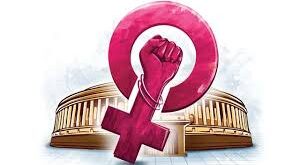- Around 60% of India’s voters now have their Aadhaar linked to their name on the electoral rolls.
- Activists have raised concerns on disenfranchisement, coercion and privacy as a result of the exercise, which has achieved coverage of over 90% in States such as Tripura, which went to the polls recently, while lagging behind in Gujarat and Delhi, where only around 30% of the electorate has provided their Aadhaar to election officials.
- The linking is being carried out by filling Form 6B, which is provided by election officials going door-to-door to collect Aadhaar or any other approved IDs from registered voters.
- The form was the result of the Election Laws (Amendment) Act passed in 2021 to allow the linking. While the Election Commission (EC) maintains that the linking is optional, Form 6B requires voters to declare that they do not have an Aadhaar to avoid doing so.
- The allure of Aadhaar for election authorities is clear: while the EC itself does not have access to the biometrics on the basis of which Aadhaar is issued, the unique identifier issued to each Indian resident allows authorities to flag voters who are registered to vote elsewhere or registered in multiple places. The EC does not authenticate Aadhaar it collects by way of biometrics or one-time passcodes sent by SMS.
- Before the Election Laws (Amendment) Act’s passage, the Supreme Court had restricted the mandatory use of Aadhaar to welfare schemes and PAN linking.
- Form 6B accepts other proofs of identity if a voter does not have Aadhaar, but it is unclear if this approach has any de-duplicating benefits.
- As the Aadhaar-Voter ID linking exercise progressed, some voters said election authorities told them that not providing Aadhaar would lead to their name getting deleted from the rolls.
- The Chief Electoral Officer (CEO) of Delhi later clarified following one such instance that the linking was voluntary, and that enquiries would be made.
- Not mandatory
- The Joint CEO of Arunachal Pradesh said voters were not being told in the State that linking was mandatory to stay on the rolls.
- Karnataka’s CEO Manoj Kumar Meena reiterated these points, and added that de-duplication of registrations on the basis of Aadhaar collected had not started. Other CEOs did not respond to written queries.
- EC officials reportedly said in December 2022 that the de-duplication process — the natural next step of linking Aadhaar — had not yet started. But an episode from 2019 offers a possible glimpse of mass deletions on the basis of Aadhaar.
- That year, activists from the NGO Swecha said that documents they had obtained through Right to Information (RTI) requests had revealed that over 20 lakh voters were deleted from the rolls in Telangana following an Aadhaar-linking exercise, then run on a pilot programme called the National Electoral Roll and Purification Programme (NERPAP).
- The CEO for Telangana at the time admitted that door-to-door verification was not done for all these deletions. The CEO who followed maintained that the majority of the voters were deleted legitimately, citing a low number of voters who re-enrolled.
Privacy issues also emerge from this exercise.
Pointing to an unusual surge in requests for voter deletions from Shivajinagar in Bengaluru last year
SOURCE: THE HINDU, THE ECONOMIC TIMES, PIB
 Chinmaya IAS Academy – Current Affairs Chinmaya IAS Academy – Current Affairs
Chinmaya IAS Academy – Current Affairs Chinmaya IAS Academy – Current Affairs



